Albanese’s negativity may prove his election Achilles heel
The Labor leader has gained the ascendancy in the polls but that won’t worry Scott Morrison … yet.
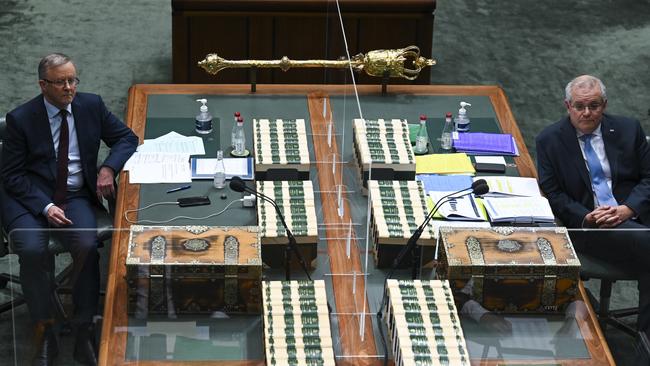
But Labor’s pole position isn’t reflected in political confidence and carries a grave risk of being built on reactive negativity, looking back at mistakes and, even when looking forward, setting thresholds for the Coalition that will be met and won’t be relevant when the election is held between March and May next year.
Pandemic politics is at a turning point as the public wearies of lockdowns, vaccinations rise, economic fears grow and the urge to travel becomes overwhelming for many.
It is not just good enough to manage the outbreaks or criticise mistakes; people want hope and to look beyond the pandemic.In 2001 Labor thought it would “surf into victory” on the wave of resentment about John Howard’s introduction of the GST. Kim Beazley didn’t win because there was more to consider than past resentment.
Twenty years later, the Prime Minister is under pressure on all fronts and the Opposition Leader is able to benefit from that pressure arising from vaccination rates, border closures, a slowing economy, divisions between government leaders, risks to mental health and disrupted education from preschool to university.
Anxious parents want their children to go to school but fear for their health, Indigenous communities face the first coronavirus infections and deaths, half the nation is in lockdown, Covid-19 cases and deaths rise daily in NSW, Victorians are confronted with the reality there will be no return to zero cases, more than 600,000 people are jobless, international and domestic borders are shut and the economy escaped a second pandemic recession this week by a hair’s breadth.
All of these things are going to get worse. Morrison and Albanese face their greatest challenges as they straddle the demands of offering practical, positive advice and the necessity of conducting the business of politics not only for their own ends but also in the national interest.
As Prime Minister, Morrison’s options are limited by reality, governed by circumstances beyond his control, constrained by constitutional law, subject to the will of his colleagues and supporters and, most of all, he must react to events.
As Opposition Leader, Albanese has greater flexibility, less responsibility and the advantage that he’s not blamed for the failures of others nor suffers from a resentful and depressed national psyche.
The latest Newspoll showed a three-point primary vote support fall for the Coalition to 36 per cent and a one-point rise for Labor to 40 per cent, leading to a calculated two-party-preferred lead of 54 to 46 per cent for the ALP.
An election result on that basis would be a clear defeat for Morrison, especially given the rise of support for “others” – independents and micro parties – back to the 11 per cent level of the 2019 election. Even if Labor support was concentrated in safe ALP seats the preference support from the Greens, One Nation and others, would deliver Albanese a victory by default.
Yet the atmospherics of the parliament, the confidence of the leaders, the enthusiasm of the MPs (restricted numbers as they are) and uncertainty of the global pandemic do not suggest the case for a clear Labor victory is guaranteed.
A large part of this feeling within the parties is the head-to-head contest between Morrison and Albanese. In Newspoll, Morrison has a clear personal lead as preferred prime minister and a marginally better satisfaction rating.
But, particularly in the last month of parliamentary sitting, disrupted by MPs locked out of Canberra and the catastrophic collapse of Kabul, there is evidence of a divergence of attitude and style that is defining Morrison and Albanese, and their respective approaches to the election year.
Morrison, not daunted by being behind in public polls having won the unwinnable election in 2019, has always been cautious, risk-averse, against public confrontation and wary of making promises that can’t be kept after falling badly on early vaccine rollout. Albanese has been patient, worked slowly to dump unpopular policies Labor took to the last election, kept a low policy profile and been determined to attack Morrison and undermine his personal standing.
In the past two weeks Morrison has become bolder, more proactive, more optimistic and more aggressive towards Albanese. At the same time Albanese blamed Morrison for more and more, established thresholds for the PM to fail, backed the rogue West Australian and Queensland premiers on border lockdowns and highlighted the slowing economy.
The net result has been Morrison repeatedly accusing Albanese of being negative and undermining the national effort to fight Covid-19 and Albanese concentrating on Morrison’s “failures on quarantine and vaccination” and exploiting Labor premiers’ difference with the Prime Minister.
Morrison is political hostage to the vaccine rollout, as he has been since the beginning of year, but, the rate of vaccination – reaching one million doses in just three days last week – points to success in “breaking the back” of national vaccinations and creating a basis for reopening the economy.
Albanese runs the risk of appearing too negative as he argues about vaccine rollout and quarantine failures as both issues head to resolution, including home quarantine for returning travellers. As well, predictions of the number of jobless “falling off a cliff”, a lack of vaccines and no economic recovery this year have proved hollow.
Government support managed to avoid a technical recession this week – two consecutive quarters of negative growth – against all predictions, by a tiny 0.7 per cent growth in the June quarter. It may have just pushed the bad news into the September quarter but did provide yet another reprieve for Morrison.
Albanese himself appears to have recognised the negative threat and at the end of the parliamentary week sought to offer a more positive agenda. “These are the four themes that we’re putting forward constructively – for a speedy vaccination rollout, a safer end to lockdowns, protecting our children and preparing for the future,” he declared on Friday.
But he has been linked for a long time to a negative agenda without a positive future. What’s worse is that he is locking himself in on the side of Labor premiers who want to extend border closures and lockdowns on flimsy grounds that run counter to global experience.
Albanese may be in front in the polls but he has to be careful he doesn’t walk backwards into an unlosable election.


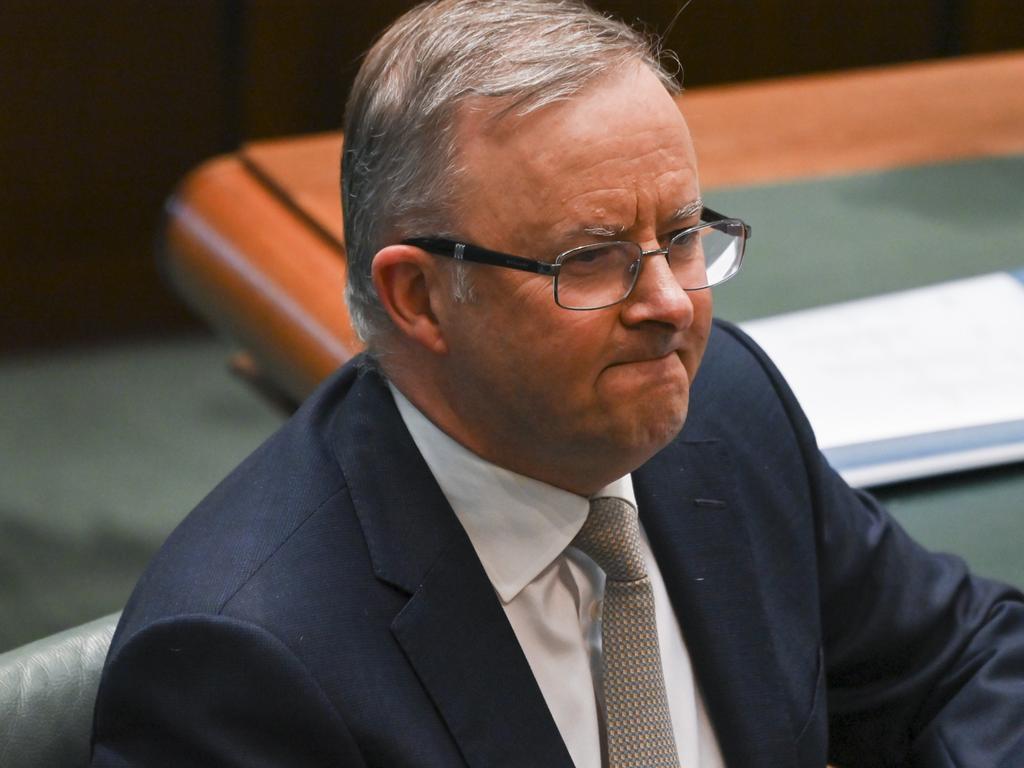
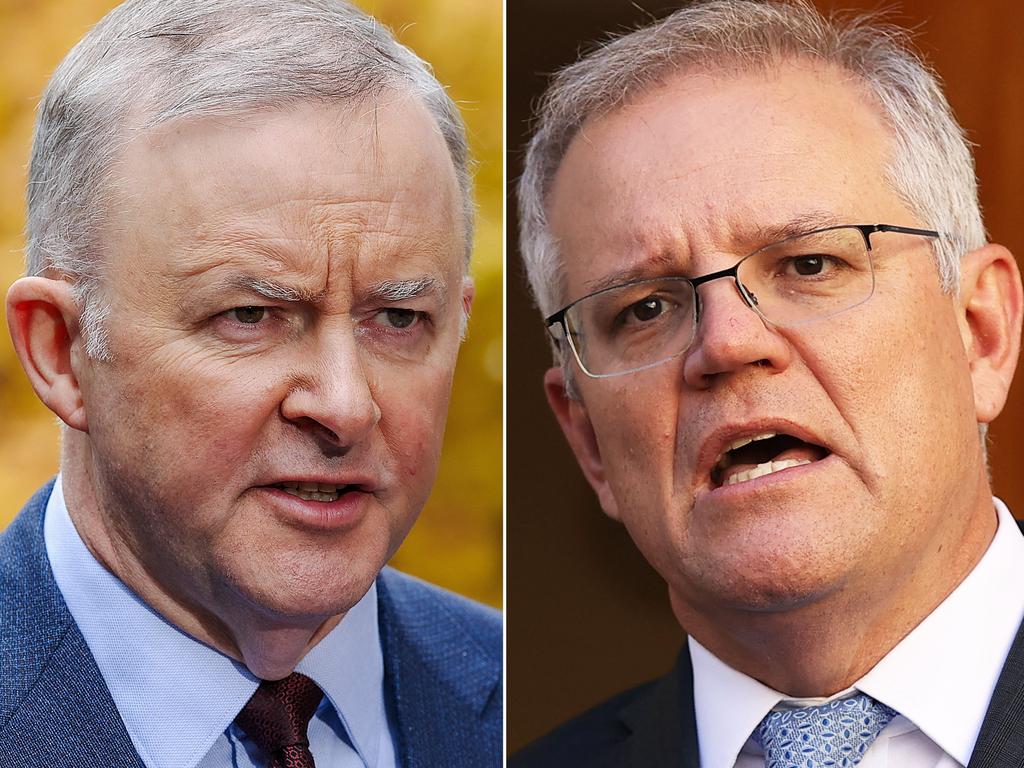
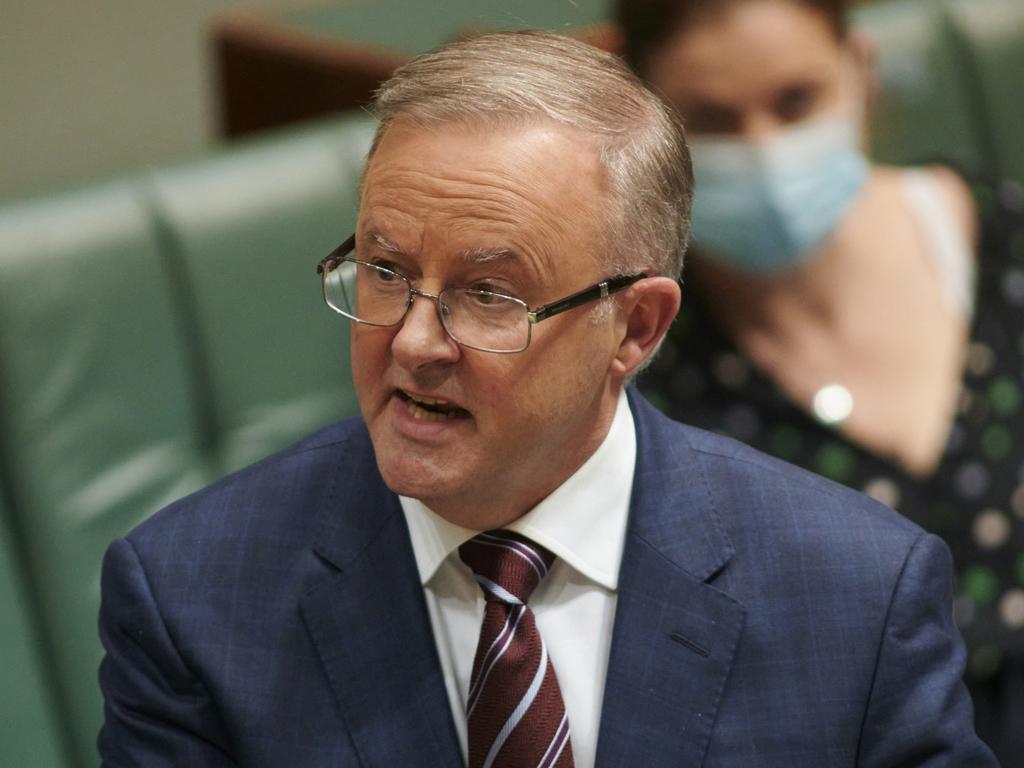
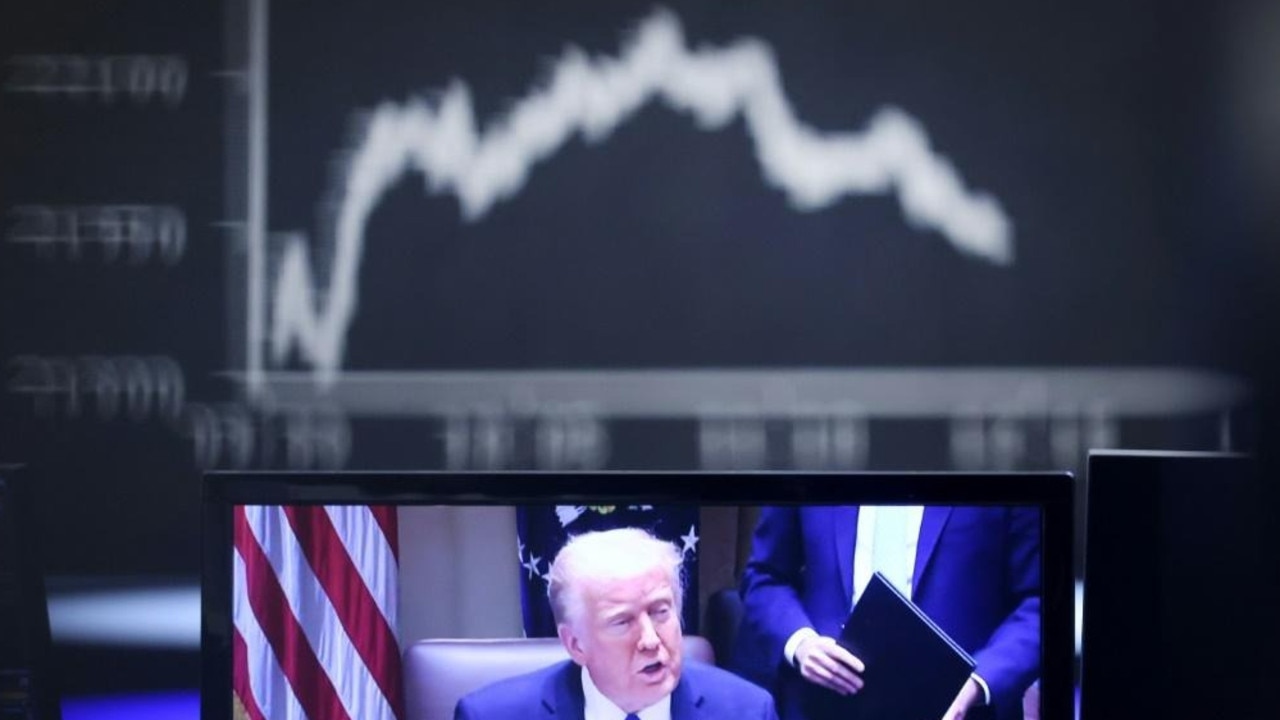

Anthony Albanese is now the frontrunner heading into an election year as parliament prepares to wrap up for 2021 and Scott Morrison faces public resentment about the Covid-19 pall over the nation’s health and economy.